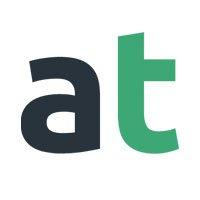Invest in rental homes and vacation rentals
Invest in farmland
Investments
$15,000
The minimum investment on AcreTrader varies by listing, generally starting at $15,000, with some past deals ranging from $3,000 to $100,000. This range is determined by factors such as the size of the offering and the price per acre.
Moderate Risk
3/5
Investing in Arrived carries risks including market fluctuations, economic factors, and property-specific issues. There's also the potential for loss, and investments are generally illiquid, meaning they can't be easily sold or exchanged for cash quickly.
Moderate Risk
3/5
Investing in AcreTrader involves risks like casualty, condemnation, and eminent domain, common to real estate investments.
Minimum Liquidity
1/5
Arrived is designed for long-term investments with limited liquidity options. The Single Family Residential Fund offers share redemption after six months with restrictions. For individual properties, shares are held until the property is sold, typically after 5-7 or 5-15 years. A secondary market for shares is being considered but is not currently available.
Minimum Liquidity
1/5
AcreTrader investments are considered illiquid, meaning investors should be prepared to hold their investments for the specified duration. While it may be possible to sell shares in a private transaction after this period, there is no established market for them, making resale uncertain.
Receive new reviews from Fintorial
Low Return
5.5-15 %
Arrived investors may earn returns through monthly rental income dividends and property value appreciation upon sale, with historical annual return estimates ranging from 5.5% to 15%, depending on the property type and use of leverage.
High Return
9.4-30.3 %
The returns from investing in AcreTrader vary, with historical examples showing realized internal rates of return (IRR) ranging from 9.4% to 30.3% over holding periods between 1.7 and 4.2 years. These variations highlight the potential for both moderate and significant returns, depending on the specific investment and market conditions.
Long-term Investment
5-15 years
Arrived targets a 5-7 year hold period for Single-Family Residentials and a 5-15 year hold period for Vacation Rentals, emphasizing a long-term investment horizon.
Long-term Investment
3-10 years
AcreTrader investments target hold periods of 3 to 10 years, though this can vary based on market conditions and sale opportunities. Properties may sell earlier or extend beyond the target period, depending on whether favorable buying offers arise or if market conditions dictate a longer hold.
Who can invest
United States
U.S. citizens or residents who are at least 18 years old can invest with Arrived, and accreditation as an investor is not necessary.
Who can invest
United States
Investing on the AcreTrader platform is limited to accredited investors, as defined by SEC regulations. Non-U.S. citizens can invest if they are legal residents of the United States.
Moderate Volatility
3/5
Real estate assets on Arrived can be subject to market volatility influenced by economic shifts, interest rates, and local market conditions.
Moderate Volatility
3/5
Farmland assets on AcreTrader typically exhibit lower volatility compared to stocks and bonds, offering a more stable investment option due to the steady demand for agricultural products and the land's intrinsic value.
Regulation and audits
SEC Regulated
Arrived's offerings are regulated by the SEC, requiring compliance with securities laws and provision of detailed offering circulars to investors. Audits and financial reviews are conducted for transparency.
Regulation and audits
SEC Regulated
AcreTrader is regulated by the Securities Exchange Act of 1934, SEC rules, FINRA rules, and state laws, reflecting its commitment to transparency and investor protection. As a registered Broker-Dealer, it must adhere to strict financial standards, undergo regular audits, and comply with ethical practices to maintain its standing and ensure the security of its investors' assets.
Insurance
Yes
Arrived properties are insured against physical damage or loss, but insurance may not cover all risks and does not protect against market volatility, economic downturns, or other investment-related losses.
Insurance
Yes
AcreTrader does not explicitly mention specific insurance coverage for investments on its platform. Generally, real estate investments, including farmland, are insured against risks like natural disasters and fire to protect investment value.
Payouts
Dividends
Arrived pays out dividends monthly, with single-family residential properties historically averaging 45 days to lease and vacation rentals taking 3-6 months to start generating income. The first dividend payment for the Single Family Residential Fund is scheduled for February 25th for investments made by December 31st, and it may take up to 60 days to receive the first dividend after investing. Subsequent dividends are paid monthly, near the end of the month.
Payouts
Dividends
AcreTrader may distribute net cash from annual income to investors after operating expenses, typically once a year in December. These distributions, based on pro rata ownership, are not guaranteed. If distributed, funds go to the investor's AcreTrader wallet or, for SDIRA or IRA accounts, to the custodian.
Withdrawals
Investors can get their money back from Arrived after the property is sold or through share redemption options, subject to specific terms and conditions. Proceeds are distributed to the investor's Arrived wallet and can be withdrawn from there.
Withdrawals
Investors can typically get their money back when the property they've invested in is sold at the end of its expected hold period, which may range from 3 to 10 years.
Extra Fees
Yes
For long-term rentals, Arrived charges an 8% management fee on gross rental income. Vacation rentals incur a 15-25% management fee. Additional fees include a one-time sourcing fee (3.5% for long-term, 5% for vacation rentals), and a quarterly Asset Management Fee (0.25% for the fund, 0.15% for long-term rentals). Other costs may apply for closing, renovation, and operating expenses.
Extra Fees
Yes
AcreTrader charges investors initial closing costs around 2% of the offering value and an annual 0.75% servicing fee of the land's value for management. The primary revenue comes from a 5% commission on the farm's sale, charged to the seller. There are no “carried interest fees.” Fee structures vary by deal, so reviewing offering documents is recommended for specifics.
Taxes
Tax Form
Arrived sends investors a 1099-DIV form by the end of January for tax reporting, and state taxes are based on the investor's state of residence, not the property's location. Vacation rentals are taxed similarly but do not qualify as a REIT.
Taxes
Tax Form
AcreTrader aims to provide K-1 tax forms electronically by early March, although delays can occur due to external reporting needs. Tax treatment varies: gains on land sold within a year are taxed at ordinary income rates, while longer holdings are taxed at capital gains rates. Depreciation on buildings or equipment may affect taxes.

